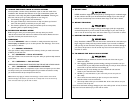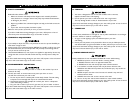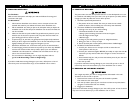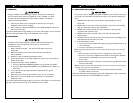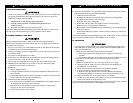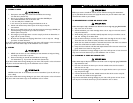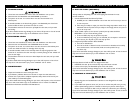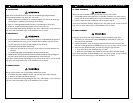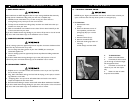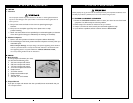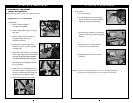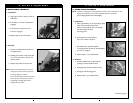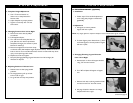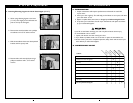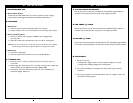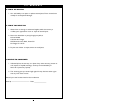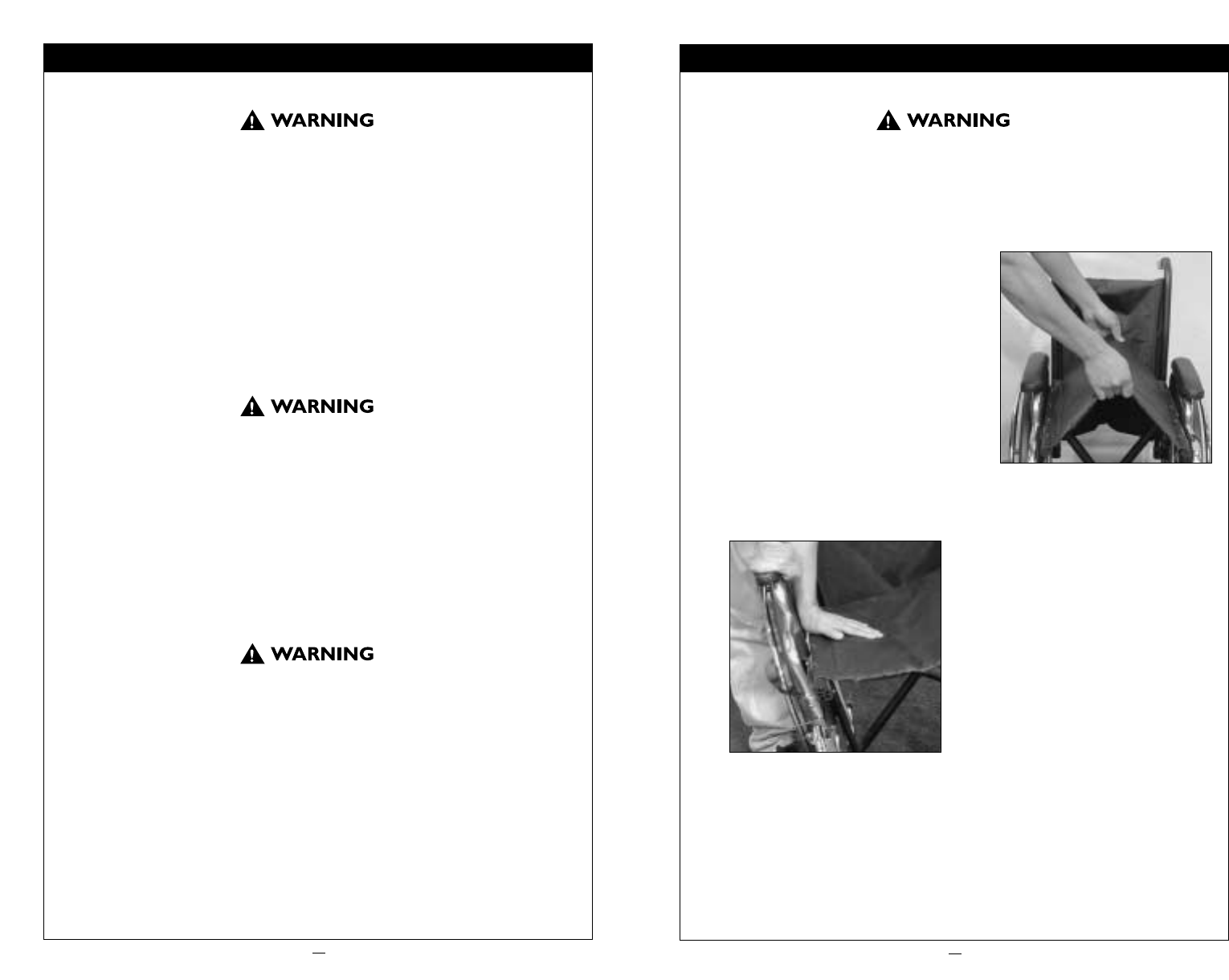
25
IX. CHAIR BASICS
A. TO FOLD & UNFOLD CHAIR
NEVER let your fingers come between the seat rail and the frame rail when you
open or fold this chair.This may cause a pinch or crush-type injury.
1. To Fold Chair:
a. Remove back insert
(if any).
b. Make sure footrests are out of
the way before you fold chair.
(Swing-away, flip up or remove
footrests.)
c. Remove cushion (if any).
d. Stand to one side of chair.
e. With both hands grasp center of
seat sling
and lift sharply until chair folds.
2. To Unfold Chair:
a. Stand to one side of chair.
b. From Side, tilt chair toward
you far enough to take the weight
off the opposite wheel.
c. Push down on the seat rail
closest to you until chair opens
fully.
d. Make sure seat rail tubes
drop into frame saddles.
24
VIII. WARNINGS: COMPONENTS & OPTIONS
▲
!
I. REAR WHEEL LOCKS
Rear wheel locks are NOT designed to slow or stop a moving wheelchair. Use them only
to keep the rear wheels from rolling when your chair is at a complete stop.
1. NEVER use rear wheel locks to try to slow or stop your chair when it is
moving. Doing so may cause you to veer out of control.
2. To keep the rear wheels from rolling, always set both rear wheel locks when you
transfer to or from your chair.
3. Make sure wheellock arms embed in tires at least 1/8 inch when locked. If you fail
to do so, the locks may not work.
If you fail to heed these warnings damage to your chair, a fall, tip-over or loss of control
may occur and cause severe injury to the wheelchair user or others.
J. MODIFIED SEATING SYSTEMS
Use of a seating system not approved by Sunrise may alter the center of balance of this
chair.This may cause the chair to tip over.
1. Do not change the seating system of your chair UNLESS you consult your
authorized supplier first.
2. Use of a seating system not approved by Sunrise may affect the folding mechanism
of this chair.
If you fail to heed these warnings damage to your chair, a fall, tip-over or loss of
control may occur and cause severe injury to the wheelchair user or others.
K. UPHOLSTERY FABRIC
1. Replace worn or torn fabric of seat and seat back as soon as you can. If you fail to
do so, the seat may fail.
2. Sling fabric will weaken with age and use. Look for fraying or thin spots, or stretch-
ing of fabrics at rivet holes.
3. “Dropping down” into your chair will weaken fabric and result in the need to
inspect and replace the seat more often.
4. Be aware that laundering or excess moisture will reduce flame retardation of the fabric.
If you fail to heed these warnings damage to your chair, a fall, tip-over or loss of control
may occur and cause severe injury to the wheelchair user or others.



